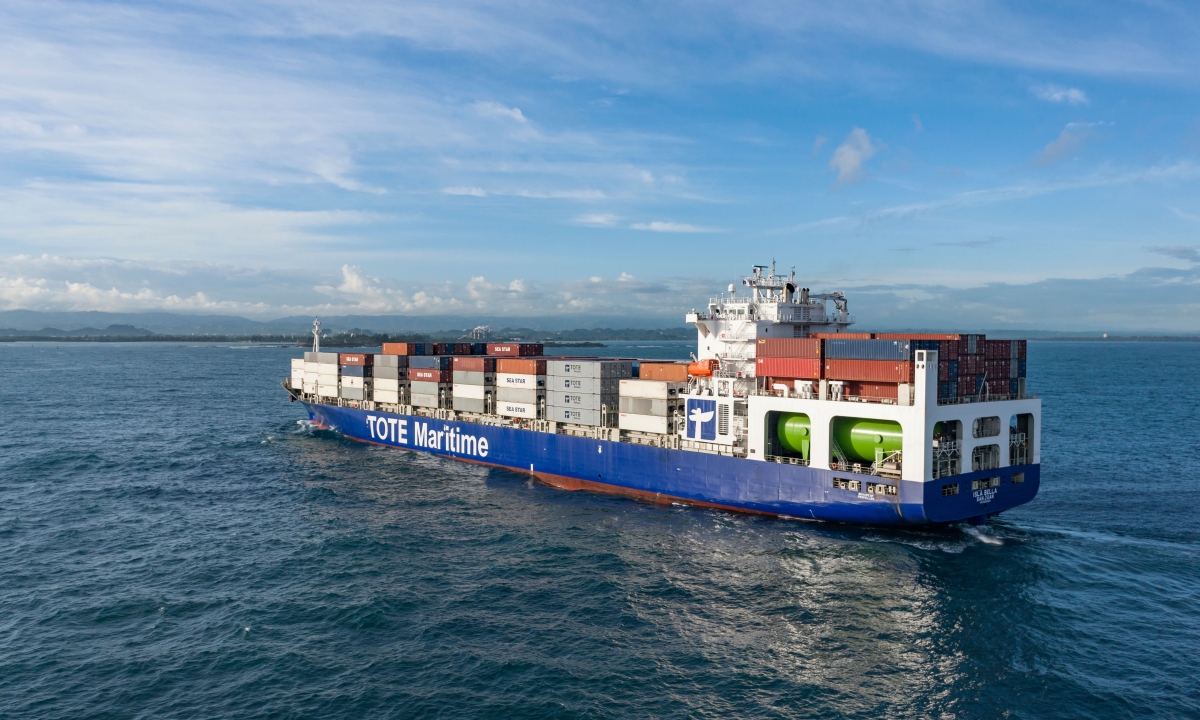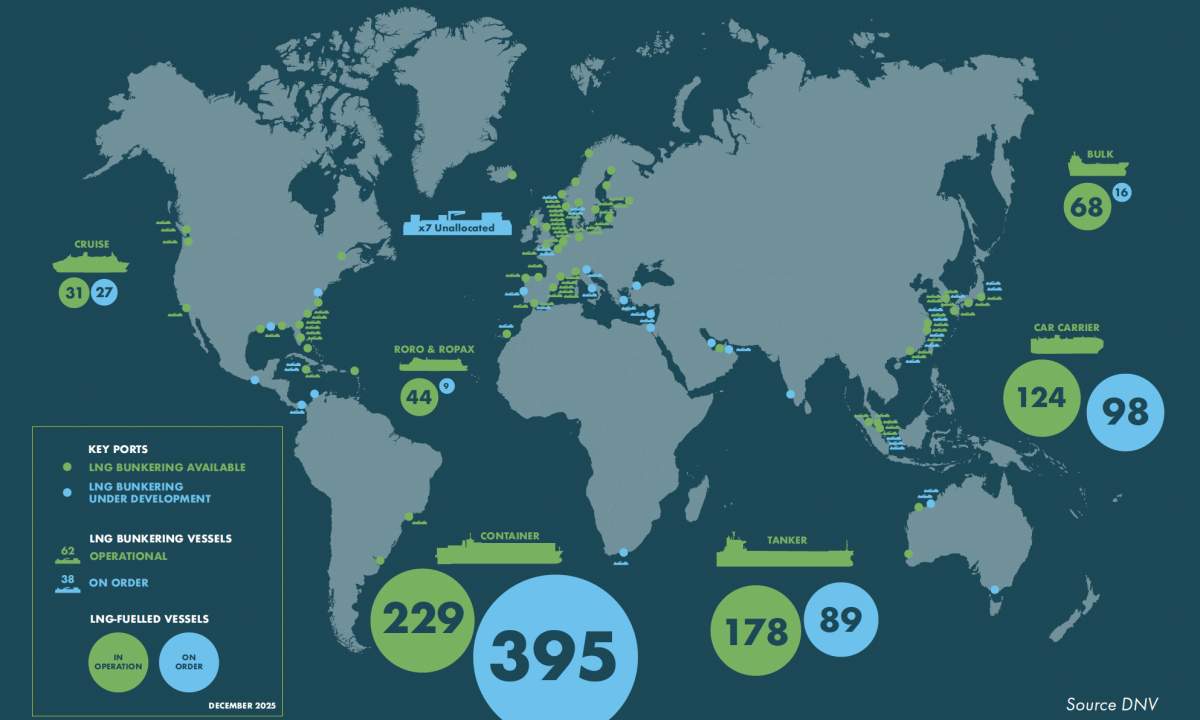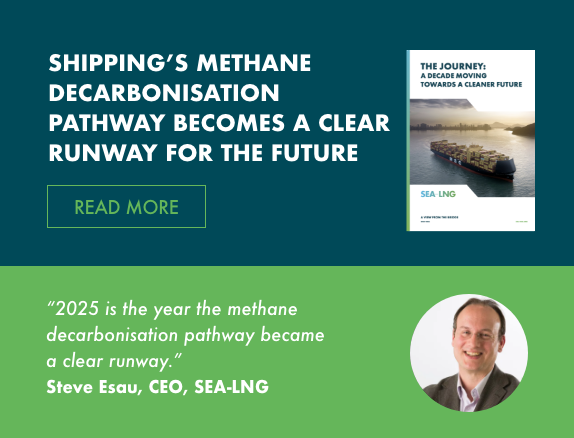21st June 2024
NEW SEA-LNG REPORT POSES KEY QUESTIONS TO EUROPEAN UNION POLICYMAKERS

SEA-LNG, the multi-sector industry coalition established to demonstrate LNG’s benefits as a viable marine fuel, has launched its new report titled Decarbonising Shipping Fuelling The Net Zero Transition Through The Liquefied Methane Pathway.
The report explores key facts about liquefied methane, its pathway to support net-zero GHG emissions in shipping and potential synergies with other emissions reduction measures, especially as new EU laws could widespread adoption of liquefied methane vessels and infrastructure.
The report notes that the shipping industry recognises that it must decarbonise the fuels it uses to support global efforts to combat climate change. Time is of the essence and action is needed today. Currently, the majority of ships (>95%) use heavy fuel oils (HFO), diesel (as Marine Gas Oil or Marine Diesel Oil) onboard, or Very Low Sulphur Fuel Oil (VLSFO). Various renewable fuels have been proposed as possible replacements to support climate neutrality by 2050, however, rapidly scaling their deployment can face significant technical and economic challenges
The report highlights how EU laws will support the widespread adoption of liquefied methane vessels and infrastructure in the coming years to decarbonise shipping. It provides three key questions to successfully achieve decarbonisation and competitiveness of European maritime transport for the next Commission and European Parliament mandate:
1) Prioritise EU funding for low and zero carbon maritime fuels production including liquefied biomethane and e-methane.
2) Ensure European industries and maritime transport have access to sufficient amounts of biomethane and e-methane irrespective of where it has been produced (inside or outside EU).
3) Uphold technology neutrality and performance-based decarbonisation targets. Policymakers should set the clear targets and enable business and industry to choose the most efficient way of reaching them.
This briefing also explores key facts about liquefied methane, its pathway to support net-zero GHG emissions in shipping and potential synergies with other emissions reduction measures. These facts include liquefied methane’s ability to cut GHG emissions and provide health benefits today alongside a clear pathway to net-zero with immediate implementation with existing infrastructure. The report also touches upon in-depth how it is overcoming the methane slip challenge as well as providing a safe and financially attractive decarbonisation pathway.
To reach net-zero GHG emissions by 2050, maritime transport needs to use lower and net zero emission fuels. For liquefied methane there is a clear pathway and transition to net-zero.
Mark Watts, SEA-LNG
DOWNLOAD DECARBONISING SHIPPING FUELLING THE NET ZERO TRANSITION THROUGH THE LIQUEFIED METHANE PATHWAY REPORT REPORT



